Inside: Have you ever tried zero waste cooking? Through zero waste cooking, your budget will stretch further allowing you to make healthier choices for your family.
by April Lewis
Saving money is usually priority number one in my household. I’m a single mom and making a dollar stretch is second nature to me.
Being able to afford organic or healthier options at the grocery store was always a pipe dream.
Then I discovered zero waste cooking. Zero waste cooking principles have helped me save money AND allowed me to feed my family healthy, homemade food every day.
It’s become such a part of my regular lifestyle that I wrote a book about it, The Beginner’s Guide to Zero Waste Cooking.
For those of you who don’t know, zero waste is all about using and re-using everything until there’s nothing left, or as close to nothing as you can get.
Related: Dear Mom Who Can’t Afford Organic Food
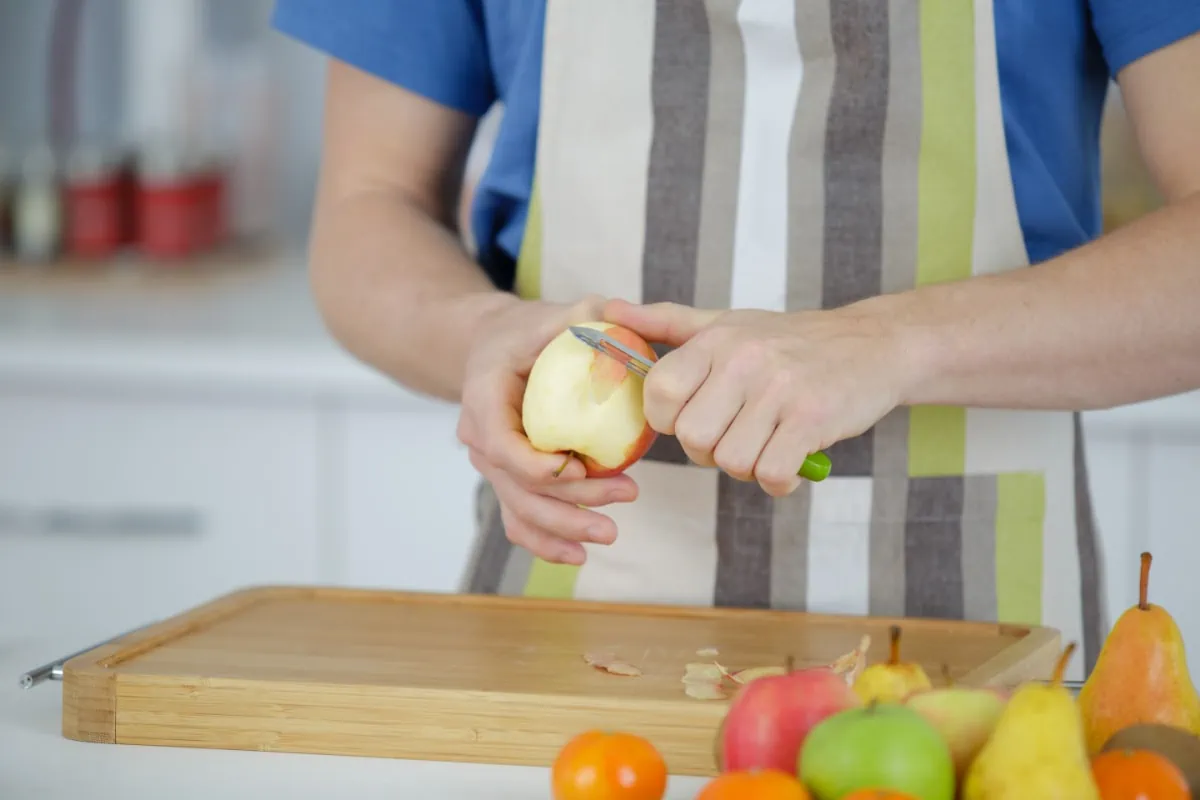
Related: Practical Ways to Eat Well When You Can’t Afford Organic Food
But what some people don’t realize is that it’s also about changing the way you purchase. For example, buying in bulk from a food co-op that lets you fill your own glass containers and pay per pound.
So you’re not only producing less waste at your home, but you’re also bringing less waste into your home.
The switch to zero waste cooking in my kitchen was a natural progression starting the first year I joined a CSA. I would have piles of trimmings, stems, and leaves left after cleaning and prepping all the produce I would bring home from the farm every week.
Do your grocery totals seem high, but you can’t figure out how to spend less? Learn more simple secrets to saving money by zero-waste cooking!
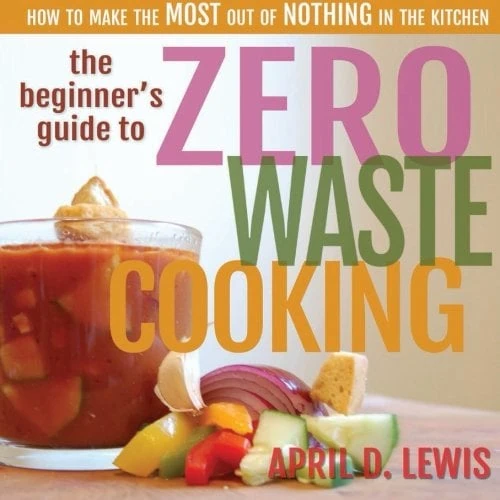
I would be so disheartened when I thought about how much money I spent on those trimmings. Putting everything in the compost bucket every week seemed like such an awful waste.
I remembered watching a cooking show and the chef had used vegetable trimmings and bones to make a stock.
It just so happened I had onion and carrot trimmings from my CSA basket. And I had a celery heart in my fridge that I could cut off the root end and put in the pot, too.
And that’s how zero-waste cooking started for me.
Simple recipes like that homemade broth/stocks and soups came first. And the more successful each recipe was, the more ideas I would have on how to use and re-use everything.
I even make my own green smoothie powder now by dehydrating tough greens stalks, running them through a food processor to turn to powder, and enjoying in my smoothies!
After the first couple years with a CSA membership, I graduated to having my own garden. I was able to save seeds from the CSA to start my first apartment bucket garden. Then, a few years later, I had my first in-ground garden.
I’ve learned which vegetable plants you can eat the leaves on and which ones you shouldn’t. For example, did you know you can eat squash leaves and blossoms?
You also can roast squash seeds and eat them as a delicious snack.
You can make corn cob jelly, pickled watermelon rind, and banana peel chutney. When I’m canning tomatoes every year I use the skins and the tops to make gazpacho.
You also could use them to make tomato paste.
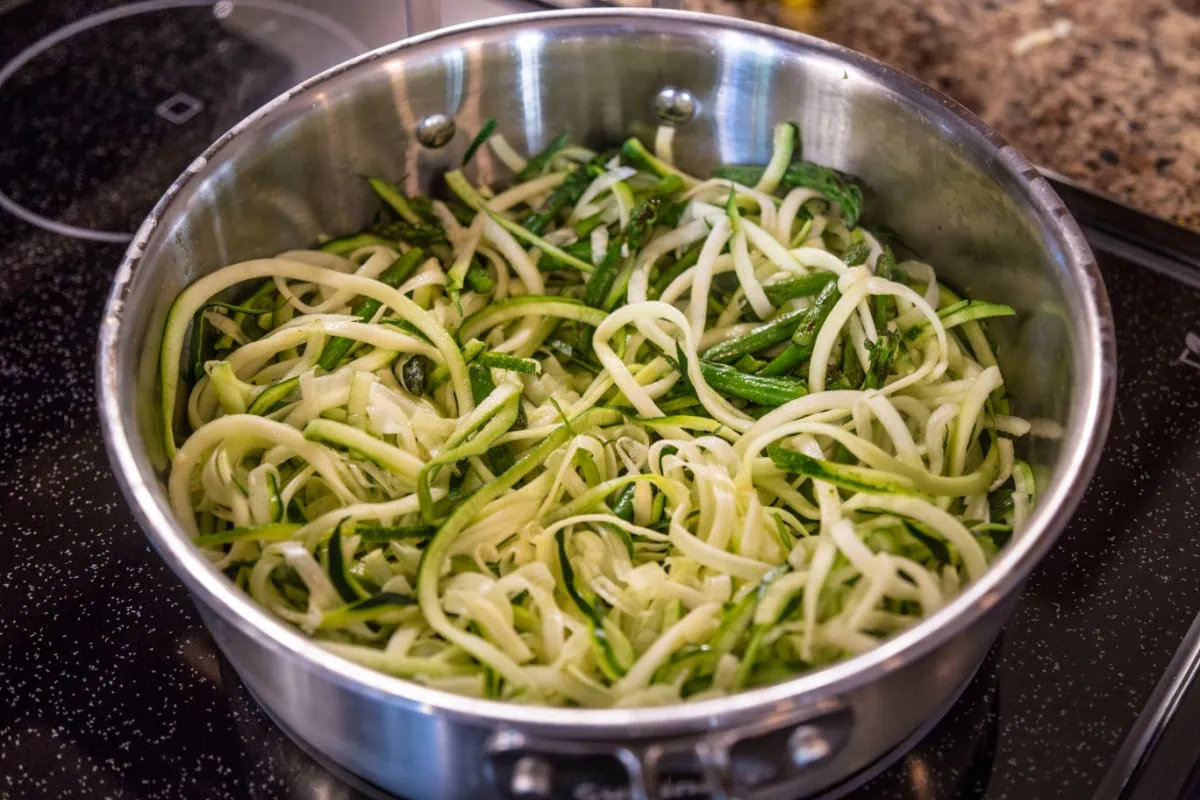
Here are 5 tips to get you on your way to zero waste cooking:
- Have an open mind willing to try new things. Don’t give up because you didn’t like something the first time.
- Reach out to like-minded people and learn from them. Visit a local CSA farm and talk to the members and the farmers. Chances are they have plenty of zero waste tips to share.
- Start simple. The easier you make this process, the less difficult the transition will be.
- A few specific kitchen gadgets will help. I have an awesome blender, food processor, and dehydrator (though not always necessary if you have an oven). Other inexpensive necessities are a salad spinner and a fine mesh sieve or strainer.
- Make it fun. Children and husbands are not typically as open to change as a mom trying to get creative and making do with what she has. Once they have one or two delicious dishes they will be more open to the process. Then let them help roast seeds and mash macerated strawberry tops.
I know from experience that healthy and organic aren’t the most affordable options at the store.
But if you apply zero waste cooking principles to all the items you bring home from the store, a CSA membership, or grow in your garden, your budget will stretch further allowing you to make healthier choices for your family.
BONUS: Get Your Free Holiday Menu Planner Printable
Get a free menu planning printable. Join my weekly-ish homemaking newsletter, and, as a bonus, you’ll get the printable PDF! Just click here to get it and subscribe.
What are some things you have around on a regular basis that normally get thrown away you could try to re-use again as part of zero waste cooking?
 April is a single mom, author, blogger, executive virtual assistant, and mini homesteader. That’s the ‘professional’ description, anyway. But really she’s a simple girl from rural west Tennessee. Her goal is to teach everyone that there are small things they can change or improve about everyday life that will have enormous impact on your spiritual life, your family, your health and the world around you.
April is a single mom, author, blogger, executive virtual assistant, and mini homesteader. That’s the ‘professional’ description, anyway. But really she’s a simple girl from rural west Tennessee. Her goal is to teach everyone that there are small things they can change or improve about everyday life that will have enormous impact on your spiritual life, your family, your health and the world around you.

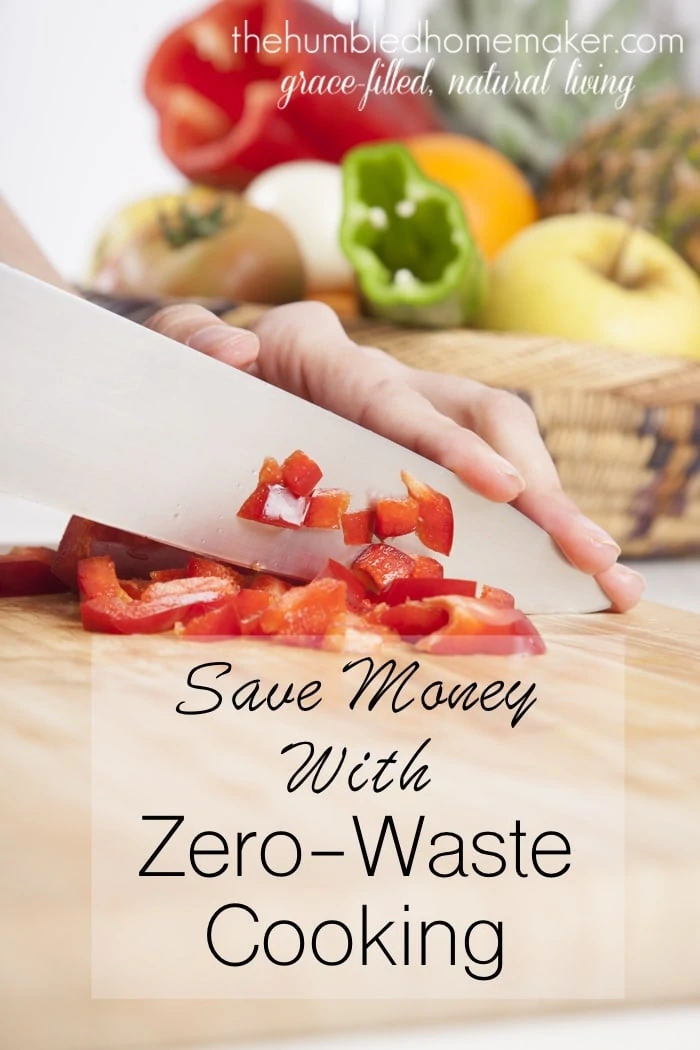
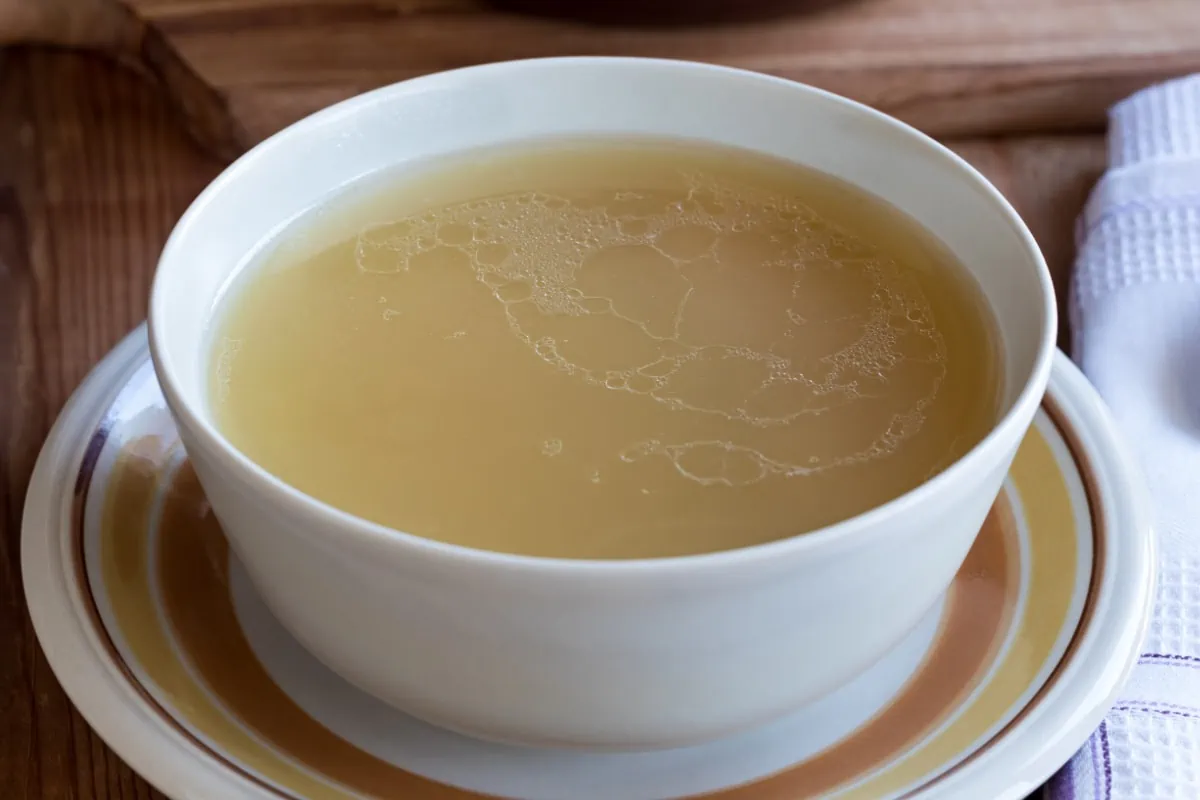
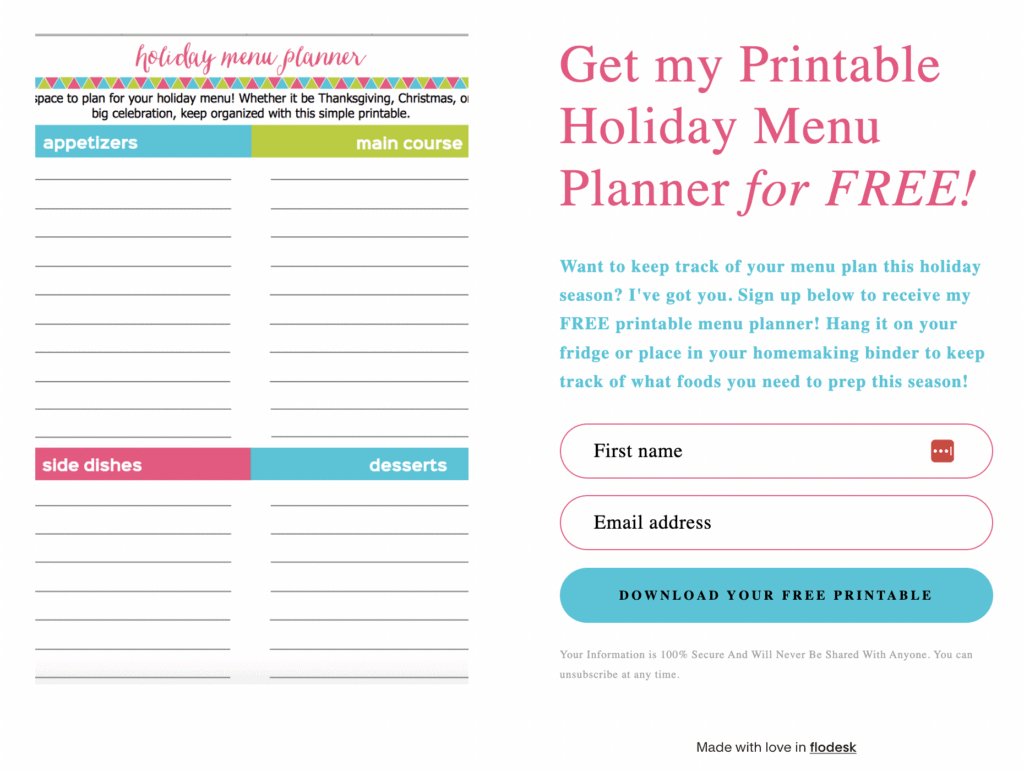




April
Thanks so much for this opportunity, Erin! Hope your readers enjoy the article.
Jean | DelightfulRepast.com
April and Erin, excellent post. I’ll be tweeting it. It’s horrible that our society wastes so much food when so many people are going hungry. And it adds to our environmental woes.
April
Thank you, Jean!
Nina Stoddard
Incredible article! I use the zero waste cooking method at my home too. I do not throw any scraps from the vegetables, I use them for broth or I just make compost for the garden. Thank you a lot for the interesting post!
April
Thank you, Nina! Great work on being zero waste minded, too 🙂
mercy nyambura
great work,one can save alot
mercy nyambura
Great opportunity for everyone
Lillian
Very helpful tips, thank you so much, Erin! I’ve decided to go zero-waste just recently, so all of this is very helpful to me!
Alberta
Zero-waste philosophy is what I’m all about these days, and as part of the process of achieving it I decided to look for zero-waste cooking, so thank you so much for sharing your experience, it’s just what I was looking for!
Lady E
This is just another thing to add to the idea of making broth. Egg shells have a lot of nutrients in them, like calcium, that make them a great choice for using to make broth. This is a little off topic but making kefir works great for minimizing waste. All you need is some milk and kefir grains, and you’ve got kefir that you can use in smoothies, in place of buttermilk in recipes (because normally I don’t need the whole amount that they sell in the store) as a sourdough bread starter, and as a salad dressing base. You could also strain it to thicken for a cheese type product and use the whey to ferment other foods. The possibilities are pretty numerous and it’s definitely an inexpensive and healthy food item to have on hand. Thanks for your post! Very helpful.
Sarah
Don’t pour away the water when you open a tin chickpeas…. Save water & whisk it up to make meringues. (Instead of egg white)
We don’t eat eggs as my son is allergic, stumbled across this fantastic discovery when researching alternative recipes 🙂
rubbishclearancebayswater
Since the Zero Waste Week I’m so inspired to reduce the waste in my life and especially in my kitchen! Thanks for sharing these wonderful tips!
Eva Bennett
Zero Waste cooking is really wonderful! If we think about how much food waste is being thrown away each year we must start thinking more of the food we throw. It is great that we can also save a lot of money by using all the food materials we have! 🙂 Thanks for the post! 🙂
Alex
Hello,
This is great! I want to try this for the blog https://bubbies.com
Janell
Zero waste sounds great…but in reality, what about those really dirty veggie scraps, or the ones that have gone bad? Am I the only one with pieces like that that can’t be reused?
Erin
For those, I have used them as compost in my garden before! Or you can use them to make veggie broth! But sometimes, you just have to throw some things away.